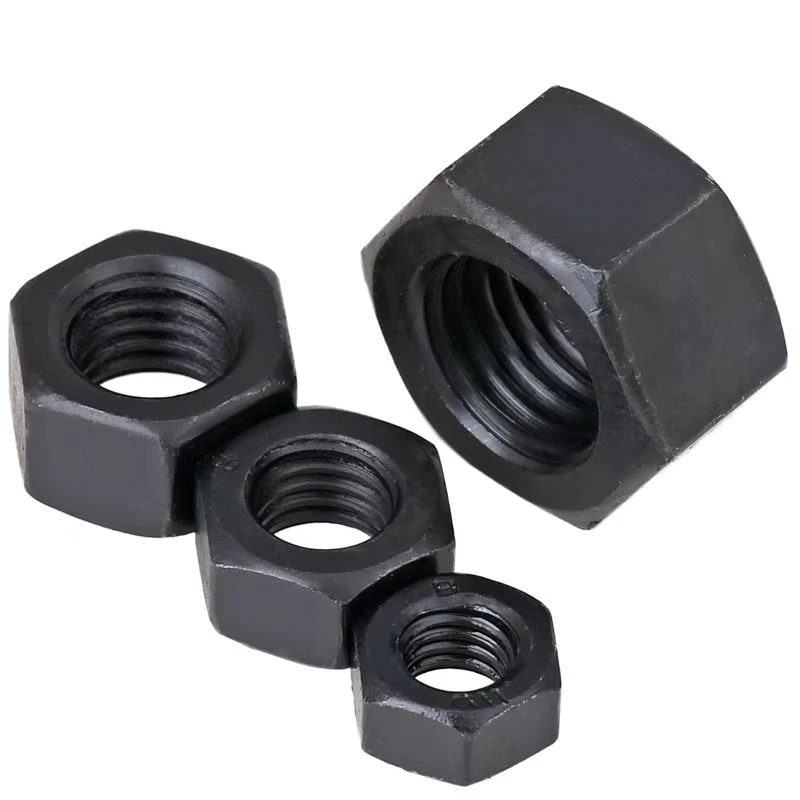Innovative Solutions for Plastic Fasteners and Hardware Components Manufacturing
کانونی یەکەم . 18, 2024 01:30 Back to list
Innovative Solutions for Plastic Fasteners and Hardware Components Manufacturing
The Rise of Plastic Bolts and Nuts A Sustainable Solution for Modern Industries
In recent years, the shift towards sustainable materials has taken center stage in various industries, prompting manufacturers to seek alternatives to traditional metal fasteners. Among these alternatives, plastic bolts and nuts have emerged as a forefront solution, combining functionality, cost-effectiveness, and environmental consciousness. This article explores the myriad advantages of plastic fasteners, their applications across various sectors, and the driving forces behind their growing popularity.
Understanding Plastic Fasteners
Plastic bolts and nuts are made from various types of polymers, including nylon, polypropylene, and polycarbonate. These materials are engineered to provide strength, durability, and resistance to corrosion and climate factors, making them suitable for a wide array of applications. Unlike their metal counterparts, plastic fasteners are resistant to rust and do not conduct electricity, making them ideal for electronic and electrical applications.
Cost-Effectiveness
One of the significant advantages of plastic bolts and nuts is their cost-effectiveness. The manufacturing process for plastic fasteners generally requires less energy than that for metal fasteners, contributing to lower production costs. Additionally, plastic fasteners can be produced in large quantities using injection molding, significantly reducing the time and cost associated with assembly. As a result, companies can enjoy lower labor costs and quicker production timelines, making plastic fasteners an appealing option for businesses looking to optimize their supply chains.
Weight Reduction
In industries such as automotive and aerospace, every ounce counts. Plastic fasteners are significantly lighter than metal alternatives, resulting in substantial weight savings for vehicles and equipment. Reducing weight not only improves overall efficiency but also enhances fuel economy and performance. For manufacturers focused on sustainability and compliance with environmental regulations, adopting plastic fasteners is a strategic way to contribute to greener initiatives.
Corrosion Resistance
One of the most notable drawbacks of metal fasteners is their susceptibility to corrosion, especially in harsh environments. Plastic bolts and nuts, on the other hand, exhibit excellent resistance to various environmental conditions, including moisture and chemicals. This attribute is especially advantageous in industries such as marine, chemical processing, and outdoor equipment manufacturing, where corrosion can lead to failures and increased maintenance costs.
plastic bolts and nuts company

Thermal and Electrical Insulation
Plastic fasteners provide excellent thermal and electrical insulation, making them essential components in electrical assemblies. They reduce the risk of electrical shorts and interference, thereby ensuring the safety and efficiency of electronic devices. This characteristic is particularly critical in industries such as telecommunications, automotive, and consumer electronics.
Versatility Across Industries
The versatility of plastic bolts and nuts allows for their use across numerous sectors. In the automotive industry, they are used in interior applications, while in the construction sector, they serve in assembling prefabricated components. Medical devices, household appliances, and furniture also make extensive use of plastic fasteners. As businesses increasingly seek innovative solutions, the adaptability of plastic fasteners positions them as an attractive choice.
Environmental Sustainability
With an increasing global emphasis on sustainability, the appeal of plastic fasteners continues to grow. Many manufacturers are now producing plastic bolts and nuts from recycled materials, further reducing their carbon footprint. The development of biodegradable polymers also opens new avenues for environmentally conscious production. As companies commit to greener practices, the demand for plastic fasteners that support these objectives is likely to rise.
Challenges and Considerations
Despite the advantages of plastic fasteners, there are challenges to consider. For instance, they may not be suitable for high-stress applications where metal fasteners are typically preferred. Additionally, the temperature sensitivity of certain plastics can be a concern in environments subjected to extreme heat or cold. Therefore, engineers must carefully evaluate the specific requirements of their applications when selecting fasteners.
Conclusion
Plastic bolts and nuts represent a significant evolution in fastener technology, aligning perfectly with modern industries' needs for efficiency, cost-effectiveness, and environmental sustainability. As more businesses recognize the myriad benefits of incorporating plastic fasteners into their operations, we can expect to see continued growth and innovation within this sector. The future of fastening solutions is undoubtedly plastic—a shift that not only reflects technological advancement but also embodies a commitment to a more sustainable world. Businesses, manufacturers, and engineers alike must embrace the opportunities presented by plastic bolts and nuts to drive progress in their fields.
Latest news
-
Premium Cabinet Bolts Supplier | Wholesale & Custom Solutions
NewsAug.24,2025
-
Reliable Axle Nuts Supplier | Quality & Precision Fasteners
NewsAug.23,2025
-
Durable Bolts for Lawn Mower Handle - Top Supplier & Manufacturer
NewsAug.22,2025
-
High-Quality Bolts for Lawn Mower Handle Supplier & Manufacturer
NewsAug.21,2025
-
Reliable Axle Nuts Supplier | High-Quality Automotive Parts
NewsAug.19,2025
-
Premium Wire Bolts Suppliers | Durable & Reliable Fasteners
NewsAug.18,2025
